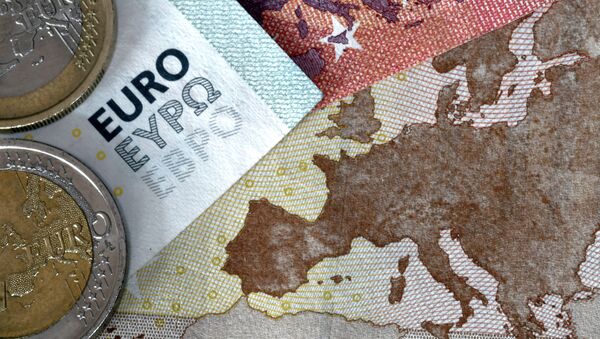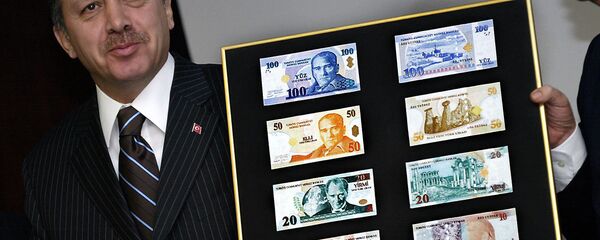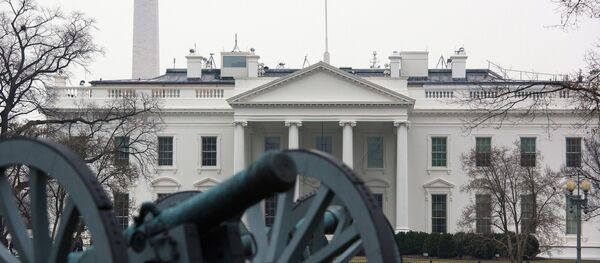Donald Trump's decision to double tariffs on Turkish steel and aluminum has become the last straw for Turkey's economy, Valery Vaisberg, the director of the analytical department of Region Investment Company told Sputnik.
"Turkey's balance of payments is rather weak," the analyst explained. "Turkey's inability to export steel and aluminum to the US (and the US is one of the largest buyers of Turkish metallurgical products) has deteriorated the already unfavorable balance of payments. The national currency has found itself in a vulnerable situation. Turkey has a low level of international reserves. Under these circumstances the external obligations of the public and private sectors have grown dramatically. Trump's decision has become the last stone that caused this avalanche."
On August 10, Donald Trump announced the imposition of a 20-percent duty on aluminum and a 50 percent one on steel.
"I have just authorized a doubling of Tariffs on Steel and Aluminum with respect to Turkey as their currency, the Turkish Lira, slides rapidly downward against our very strong Dollar! Aluminum will now be 20 percent and Steel 50 percent. Our relations with Turkey are not good at this time!" the US president tweeted.
I have just authorized a doubling of Tariffs on Steel and Aluminum with respect to Turkey as their currency, the Turkish Lira, slides rapidly downward against our very strong Dollar! Aluminum will now be 20% and Steel 50%. Our relations with Turkey are not good at this time!
— Donald J. Trump (@realDonaldTrump) August 10, 2018
For its part, Ankara has announced high tariffs against some US goods, including electronics, alcohol, cars, cosmetics and rice.
Trump's tariff spree has hit the already weak Turkish lira: according to Forbes, "year to date, the lira has lost 42 percent of its value, making it one of the world's biggest forex losers."
Vaisberg opined that the lira's slump may backfire upon Russia and Europe. For his part, Anton Shabanov, an independent economic analyst, did not rule out that the fall of the Turkish lira could hit the EU's euro.
"The Turkish lira is directly pegged to the dollar," Shabanov told Sputnik. "It falls substantially, and the Turks at one time took a lot from the European Union. If Turkey is not able to pay its debts (there is a debt of about $140 billion), then the EU will have problems. And, accordingly, there will be problems with the euro."
According to Vaisberg, 7 to 7.5 liras per dollar is a red line for Turkey.
"[Turkey's] Central Bank relaxes rules to allow the increase in the capital stock. But the measures that the market expects, namely, a sharp increase in the base rate and possible negotiations with the IMF, are not being taken. Investors do not believe in the ability of the regulator to reverse the situation. And while this continues, the panic will continue."
According to Vaisberg, it's up to Erdogan to take decisive steps to reverse the situation.
Meanwhile, the Turkish president signaled that he was ready to switch to national currencies in payments for trade settlements with China, Russia, Iran and Ukraine.
Speaking to reporters, Russian Foreign Minister Sergei Lavrov confirmed that Moscow is ready to conduct non-dollar operations with Ankara.
"The use of national currencies for mutual trade has for several years been one of the tasks that the presidents of Russia and Turkey had set," Lavrov said during a joint press conference with his Turkish counterpart Mevlut Cavusoglu.
For his part, Qatar's Emir Sheikh Tamim bin Hamad Al Thani has promised to inject $15 billion of direct investment into Turkey's economy during his latest meeting with Erdogan in Ankara.
Nevetheless, the Turkish lira remained below 6.0 against the dollar on August 16.
The views and opinions expressed by the contributors do not necessarily reflect those of Sputnik.






